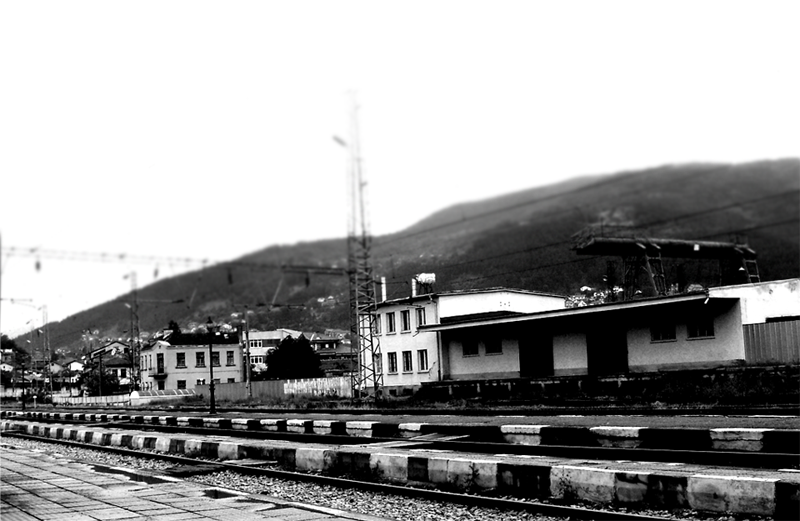What To Drink in Bulgaria
If you have already read the article about what to eat in Bulgaria, you have seen the word "rakia" few times. This is the page where you'll learn more about it and the other popular drinks here.
But first, let's start with the basic needs:
Water
Tap water is safe anywhere in Bulgaria, and maybe surprising, it often tastes really good. The water is especially good and cold in most mountainous places and in Sofia. It's not so good in some parts of the country where it can be chalky but nevertheless it's safe. But don't drink water from just any tap you see. Sometimes especially in villages the water in outdoor fountains is not good for drinking. The water for cleaning hands in public WC may also be recycled and not safe too.
Generally you are safe to drink the tap water in your hotel or hostel, in any house and in public places where you see locals drinking it too. If in doubt just ask someone.
Bulgaria is famous for its mineral waters (or at least we like to believe so). Many of them are used for spa but there are also many good waters for drinking. In many locations including Sofia there are a few outdoor fountains with drinking mineral water. If you don't find any around, you can always buy mineral water from any store or kiosk. The cost is between €0.30 for 0.5l to €0.5 for 1.5l. The water may be brutally overpriced in some touristic places, cinemas and restaurants. |
Non-Alcohol Drinks
There is nothing surprising to be expected here. The most popular brands of soft drinks and natural juices can be found in every store. We have many local brands of soft drinks too. In most cases you won't find them in bars and restaurants but only at grocery stores. Those can be very cheap, something like €0.3 for 2 liters bottle.
Tea and coffee are available everywhere for prices starting at just €0.15 and going up to €2.50. In most places people don't have much idea what a good coffee or tea is, so don't expect wonders. Don't be surprised if you ask for green tea but receive black for example. Note also that most Bulgarians make no difference between tea and herbal tea. Coffee is usually machine-prepared and it's unlikely to find Turkish coffee in casual places. Of course there are few good and more expensive cafes which can make good coffee and offer big variety of tea.
Many fast food shops and kiosks offer ayran (kefir). It's almost always available in donner kebab shops for example. It's supposed to be made with the (famous?) Bulgarian yoghurt but don't rely on this too much.
Many tourist guides will tell you to try the (I'll use this word "famous" once again) boza. In reality it isn't as popular as it used to be, and isn't as good either. It's worth trying mostly if you find a place where boza served with pastry and prepared locally, not bottled. Note that the boza has minor alcohol content (around 1%).
During the cold season you can find sauerkraut juice mostly at the outdoor marketplaces. It's an interesting and healthy drink but don't drink too much of it to avoid stomach problems.
Alcohol
While most Bulgarians like to drink alcohol they don't do it as intensively as other nations (Russians or Skandinavians for example). Alcohol is available in almost every restaurant or bar, even on kiosks, and in most grocery stores too. It's there in most cafes as well. Those who don't normally serve alcohol, often serve at least beer.
Compared to the costs in other EU countries, alcohol is very cheap. Note that is not allowed to sell alcohol to persons under 18, and you are not allowed to drive after drinking.
There are some alcohol drinks which deserve attention:
Bulgarian wines can be very good especially when you consider they cost much less than wines from other countries. Don't expect quality from the cheapest wine (there are 2 liter plastic bottles of wine sold for €1.5), but most wines above €4 - €5 per normal glass bottle are good. If you are visiting people in villages or small towns in the country you are likely to be offered homemade wine that the owner is very proud of. In most cases you will be disappointed by the quality but you are expected to pretend that you like it. Don't drink too much of such wine.
Rakia is a drink made of grape, plums or other fruits and contains 40% or more alcohol. It goes well with salads, pickles or other appetizers. It's always a good idea to try it, and again if someone offers you homemade rakia, approach with caution and drink little. Homemade rakia often contains more alcohol - sometimes more than 60%.
And finally - never drink hungry, there is delicious food in Bulgaria for you.


